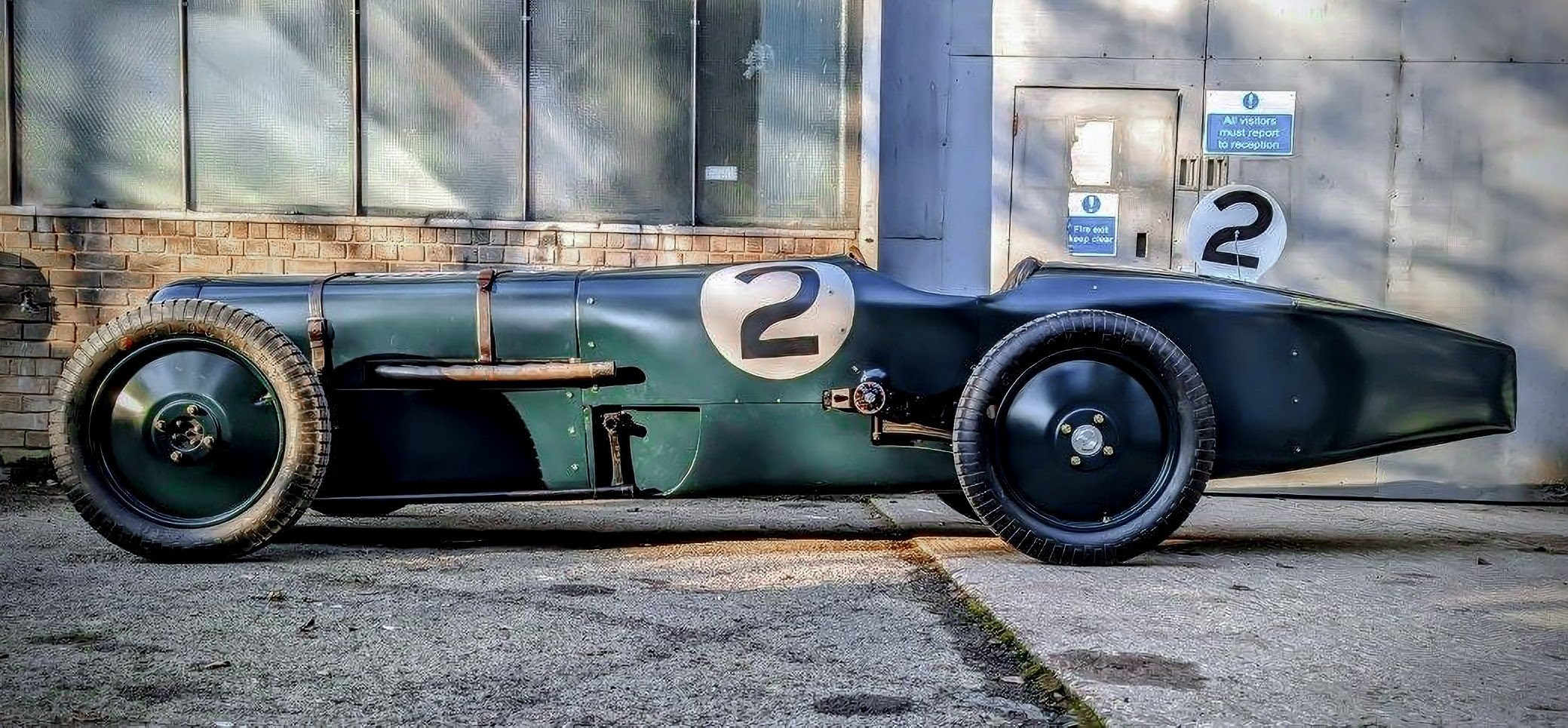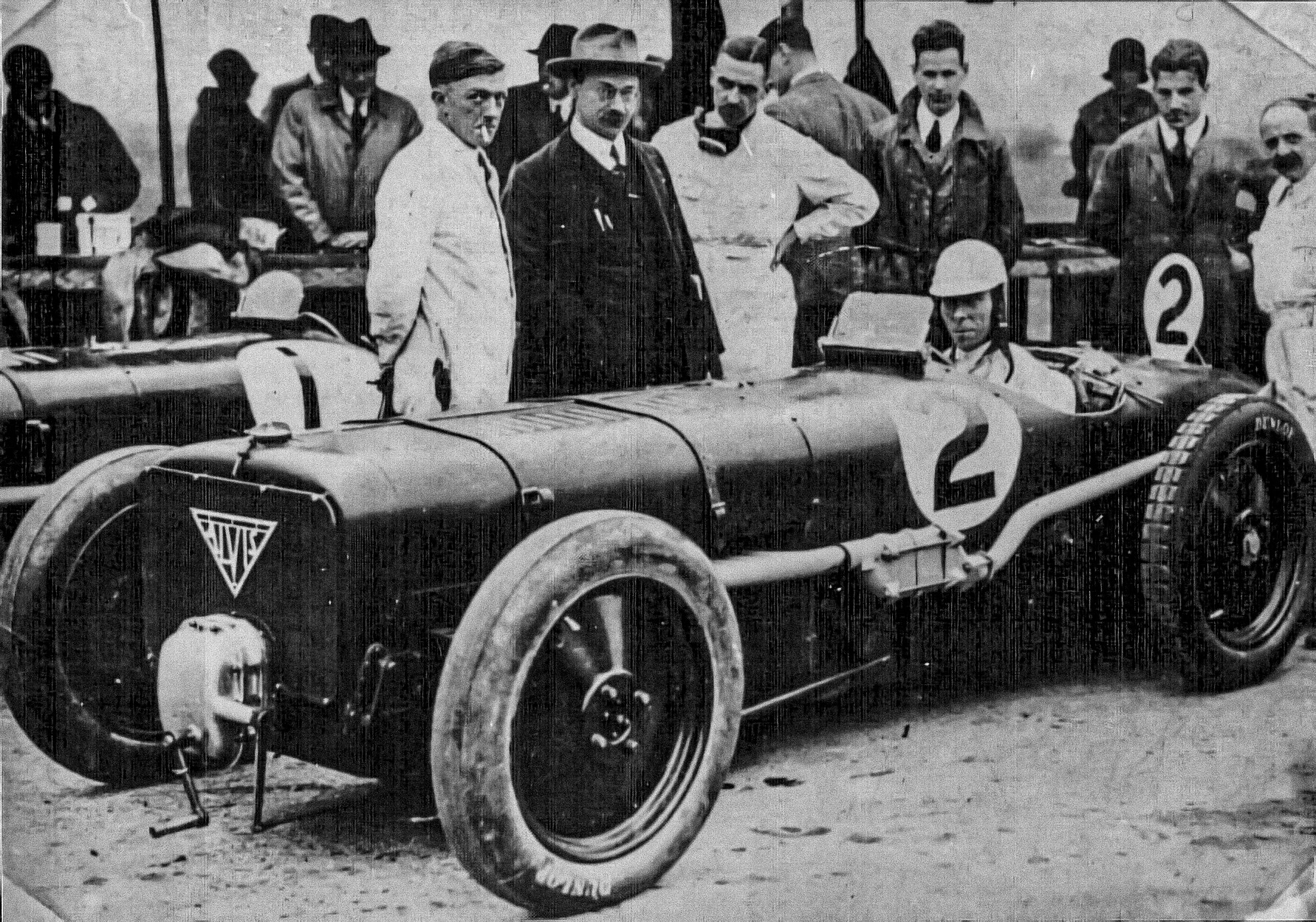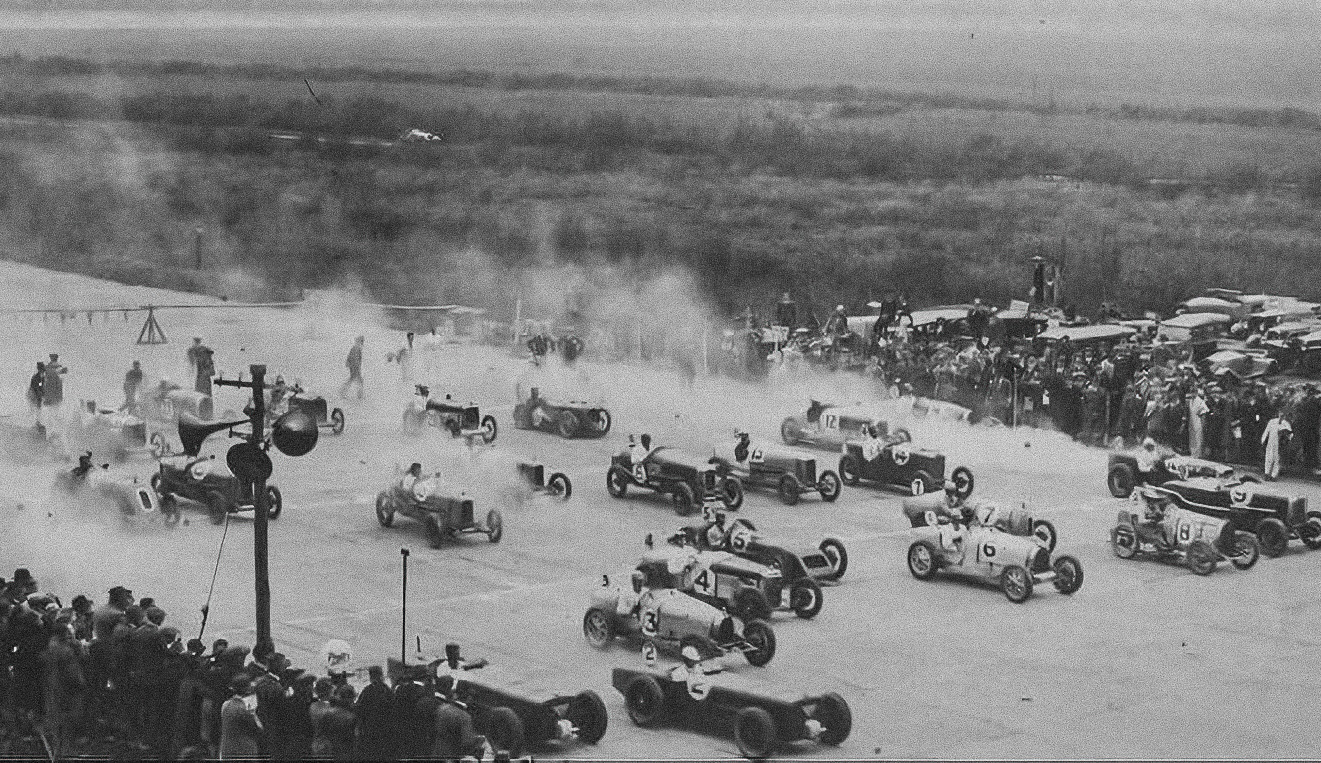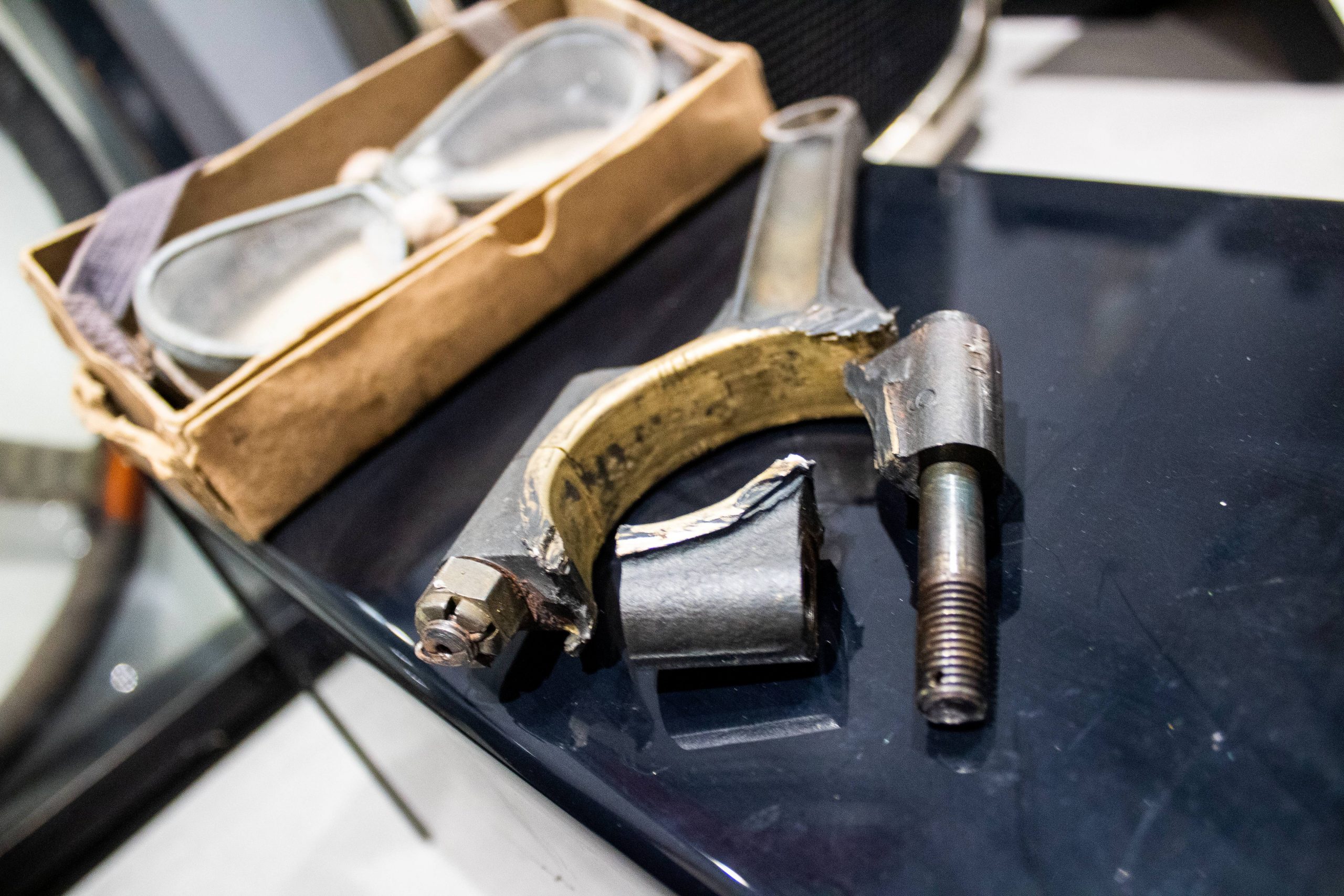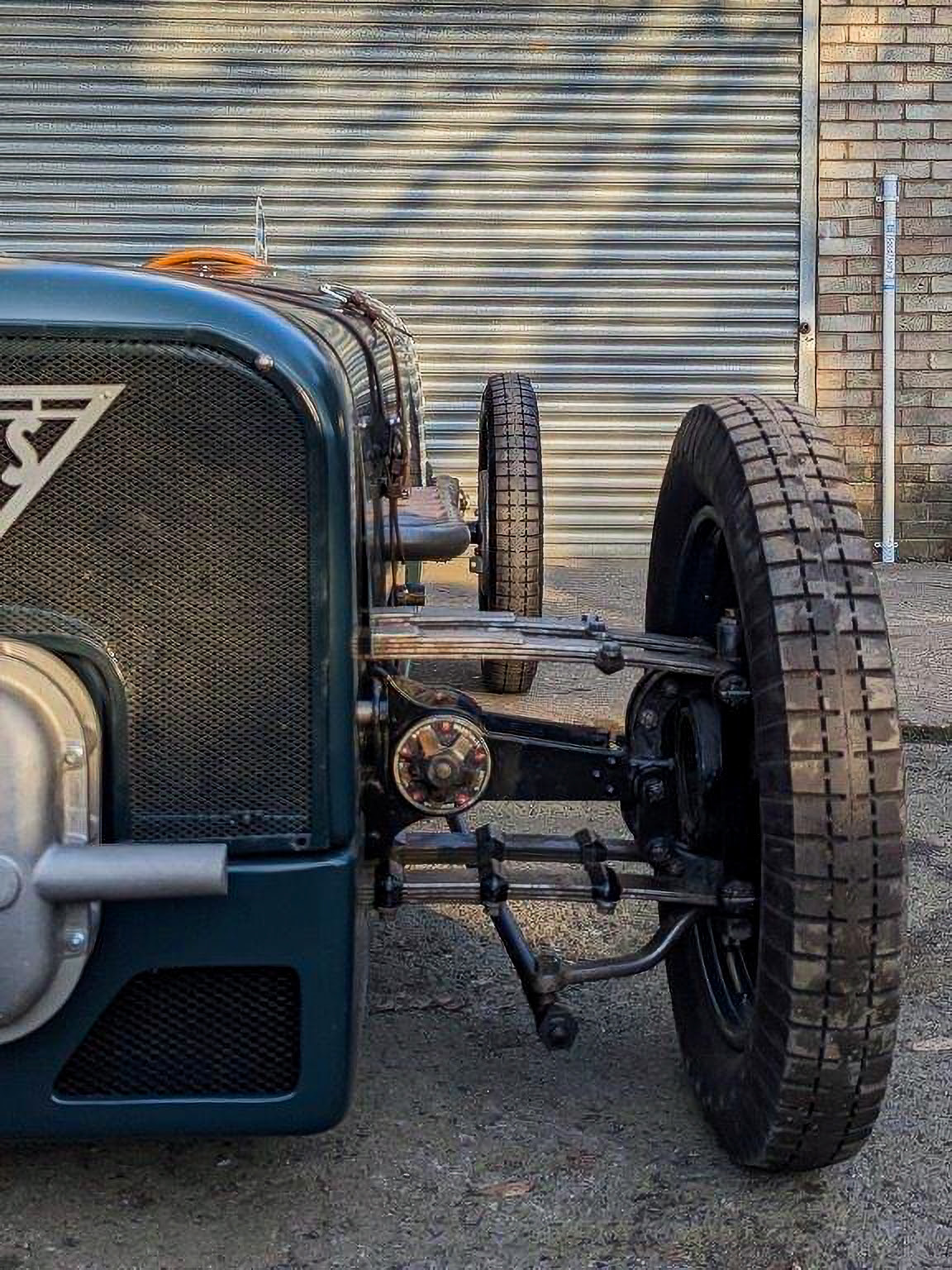Innovative front wheel drive Grand Prix race car resurrected after being left to rot in a scrapyard…
- The Alvis Grand Prix car, one of the first of its kind to use front wheel drive, has been extensively restored 96 years after a retirement at Brooklands curtailed the factory effort.
- Abandoned in a Warwickshire scrapyard after its race career ended, the sole surviving Alvis Grand Prix is highly original, having not been subjected to years of competition.
- Revealed at Automobile Council 2023 (14th – 16th April) in Japan by Meiji Sanyo, exclusive Alvis distributor for Asia.
- The historic racing car is being restored by the same organisation that created it in 1927, The Alvis Car Company, as a standard bearer for the marque’s recent revival.
Kenilworth, UK – 13/04/2023 The sole surviving Alvis Grand Prix racing car, once abandoned in a scrapyard in Coventry, is being revived by The Alvis Car Company, its original creator. It is set to mark its first public appearance in Chiba City, Japan at Automobile Council 2023, 96 years after its race debut at the 1927 Junior Car Club 200 Mile Race at Brooklands.
After lying dormant for decades, it has been a long and arduous journey to resurrect the historic competition car to its former glory. Despite the car being largely original upon its acquisition in 2006, with only a handful of parts such as the bonnet, rear suspension and radiator entirely missing, the car’s rejuvenation has relied on several months of painstaking research.
The Alvis caused a stir in 1927 owing to its highly unusual mechanical layout. Remarkably, the car has no conventional front axle. Instead, the steering system uses four elliptic leaf springs in a unique, independent arrangement. A powerful in-line, eight-cylinder, 1.5-litre, supercharged engine sits just behind the longitudinally mounted gearbox, giving the car a distinctive length when compared to its competition in 1927.
Pitcher set about trying to find a replacement engine and gearbox and settled on a 1929 engine that originally came from either Alvis’ TT or Le Mans cars and an Alvis transmission system from 1929. Pitcher’s idea to re-develop the Alvis with a rear-engine layout fortunately never materialised, and he was forced to sell the car when his business failed, around 1955. The new owner, lifelong front wheel drive Alvis enthusiast Nic Davies then owned it for nearly 50 years. Davies travelled the world with the car, taking it to Australia, Papua New Guinea, Florida and more. Throughout this time, the car was kept in the condition left by Pitcher, until 1990, when Davies began an ambitious reassembly project.
Although far from complete, this project saw the car run under its own power for the first time in over 75 years on the 19th of April, 2003. It was in this state in 2006 that the car was acquired by Alan Stote (the current owner of The Alvis Car Company) and Tony Cox (a front wheel drive Alvis expert), and the definitive restoration process to period specification began.
Several period photographs of the car in race trim, surviving drawings of its engine and the core elements of the car that remain in good condition (chassis frame, bodywork etc.) have been crucial to returning the car to its original state. Fastidiously studying these parts and reverse-engineering them using CAD allowed Alvis to remanufacture new components in its factory, or with UK-based suppliers. A new, period-correct engine block and gearbox casting replaced the similar but incorrect units Pitcher had sourced decades ago, to ensure the utmost faithfulness to the original car.
The restoration of the Alvis Grand Prix is the latest achievement for the flourishing British marque and follows its range of six ‘Continuation Series’ road cars and an order book for the handmade models stretching into 2025.
Together with sister company Red Triangle, the Alvis Car Company offers parts and sales of period and new Alvis models alongside restoration and maintenance services. All of this takes place at its works in Kenilworth alongside a vast storeroom of authentic Alvis parts, stored since the original factory site closed in 1967.
“The lack of historical information presented a key challenge during the restoration process, but at the same time has made the project more intriguing, and one that has been a journey of discovery,” says Alan Stote, the owner of The Alvis Car Company.
The car is set to be publicly unveiled at Automobile Council 2023 (14th – 16th April), in Chiba City, Japan as a complete rolling chassis. Further work is planned to complete the engine later this year, ahead of a series of demonstrations and displays at key events. Alvis would ultimately like the car to return to Brooklands in 2027 for the 100th anniversary of its debut.
About The Alvis Car Company
T.G. John began manufacturing Alvis cars in Coventry in 1920. Coachwork was supplied by Cross & Ellis and Carbodies.
In 1925 Alvis became the first car manufacturer in the world to design and race a front-wheel-drive model. A year later, an Alvis straight-eight FWD GP racing car lapped Brooklands at 121mph and in 1928 Alvis FWD models finished first and second in class at the 24 Hours of Le Mans. The company started producing and marketing FWD cars that year.
Another world first was achieved in 1933, when Alvis designed the world’s first all-synchromesh gearbox and started working on the first British car with independent front suspension.
After World War 2, Alec Issigonis joined Alvis to design a prototype 3500cc V8 engine.
In 1968, the Alvis passenger car division was relocated to Kenilworth after 22,000 vehicles had been built; 50,000 works drawings, technical data sheets and correspondence files are stored there. Through wholly-owned Red Triangle, it continues to manufacture parts, service and restore Alvis cars for existing customers worldwide.
Synonymous with craftsmanship and innovation from the twenties until 1968, the Alvis name and fame continue thanks to The Alvis Car Company, which produces Alvis cars renowned for their outstanding quality and charismatic coachwork. It started developing the original Alvis-designed 3-litre and 4.3-litre units in 2010, focusing on meeting global emission regulations whilst remaining as faithful as possible to the Works drawings still held at the Kenilworth factory. The company manufactures its new range of bespoke limited-edition Continuation Series and in 2019 has nominated respected Japanese company Meiji Sangyo to be its distributor in the region.
More information
www.thealviscarcompany.co.uk
Twitter: @AlvisCarCompany
Facebook: @Alviscarcompany
Instagram: alviscarco
Linkedin: The Alvis Car Company
